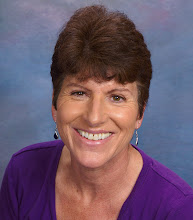 L.J. Sellers is an award-winning journalist and editor and is the author of the Detective Jackson mysteries, The Sex Club and Secrets to Die For. She also loves to edit fiction and works with authors to keep her rates affordable. Contact her at:
L.J. Sellers is an award-winning journalist and editor and is the author of the Detective Jackson mysteries, The Sex Club and Secrets to Die For. She also loves to edit fiction and works with authors to keep her rates affordable. Contact her at:L.J. Sellers
Write First, Clean Later
1. When did you first notice you were hung-up on typos?
After I became an editor! I was a journalist first, but most jobs in publishing require you to write and edit, as well as plan publications, read/screen submissions, layout pages, and more. So I learned editing on the job from senior editors. Once you train yourself to look for errors at work, you can’t turn it off.
2. What advice would you give someone interested in becoming an editor?
Find a starting position as an editorial assistant and learn everything you can from seasoned editors around you. Buy and read Strunk and White Elements of Style, The Careful Writer, and APA Style Manual (Chicago lite).
3. What's the best advice you have ever received from a writer?
A new writer/editor to our magazine staff asked me to be gentle with her copy at first, so I made an effort to use suggestions rather than absolute comments. I’ve stayed with that style. All edits are optional anyway. Writers can and do ignore their editors, so I work from that perspective.
4. What's the best advice you've given a writer?
Pay attention to and proof everything you write, every e-mail, every blog, every comment you post. Sloppy practice makes for a sloppy game.
5. In your opinion, what makes an editor great?
The ability to not only make a writer sound better, but also to develop such a feel for the writer’s voice that the changes serve to enhance the writer’s style.
6. What's the one misperception about editors you want to clear up?
Most editors don’t get any joy out of finding errors. We’re in a rather no-win situation. No one really likes to see his/her mistakes pointed out, yet if we miss anything, we look bad. So we either point out everything and make the writer look bad, or look incompetent ourselves.
7. Why should a writer choose to work with you?
See #5. I quickly pick up a writer’s personal voice and make syntax edits that are consistent with the writer’s style. I also have great sense of story structure and pacing. And I inevitably do more work for less money than I contracted. It’s a compulsion.
8. What genres do you focus on? Why?
My favorite genre to read, write, and edit is mystery/crime/suspense. But I’ve also worked on a few sci-fi novels lately and have come to really enjoy that genre as well. I also edit and ghost write scientific books/articles and corporate reports. Truthfully, I’ll edit anything.


Nice to meet you in-depth, L.J. Like you, I have a compulsion to do more than originally contracted and not charge more. My hubby is always looking at the bottom line and asking me why. If you have a good answer, I'll pass it along. :-)
ReplyDeleteGreat advice, LJ.
ReplyDeleteYou're so right, we always spend a lot of time on manuscripts, too many to want to figure out what we earn per hour or per page!
Helen
I especially liked your #5 answer - being able to discern an author's voice and help bring it out is a wonderful quality in an editor.
ReplyDeleteHaving been on the receiving end of LJ's edits, I can tell you she was thorough (and yes - I was shocked to see so many comments on every page), gentle, and generous with additional comments (suggesting ways to make some passages better, explaning why she thought something should be deleted, etc.)
ReplyDeleteI enjoyed working with LJ and learned much from her.
Charlotte Phillips
Thanks, Charlotte. It's nice to be appreciated. And it was truly enjoyable to have such a great manuscript to edit.
ReplyDeleteI'm guilty of clicking too fast on my comments, then looking and finding something wrong. I have to stop doing the hit and run thing.
ReplyDeleteMorgan Mandel
http://morganmandel.blogspot.com
http://twitter.com/morganmandel
Love your number five, L.J. It's all about helping to develop a client's work so that it still reads and sounds like his/her work, :-)
ReplyDeleteLJ worked on my science fiction novel The Resqueth Revolution and I cannot begin to do justice to her awesome editing skills. She clearly marked the differences between outright mistakes and stylistic suggestions, and those suggestions were always insightful and helpful. She adapted herself to my voice to the point of catching me when I was inconsistent with that voice. Her efforts drastically improved the quality of the book. Thank you LJ.
ReplyDeleteLJ,
ReplyDeleteAs several others have said, maintaining the author's voice is so important.